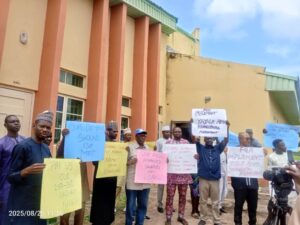
A Bill for a law to encourage and facilitate whistleblowing, to regulate the receiving, investigating and otherwise dealing with disclosures by whistle blowers, and to protect whistle blowers from reprisals and other related matters has passed second reading in Bauchi State House of Assembly during its plenary on Tuesday.
Leading debate on the Bill, the sponsor Speaker Rt. Abubakar Y Suleiman said that
the Bill when passed into law will complement Federal Government’s “whistle-blower” policy which encourages people with viable information on fraud, bribery, looted funds, financial misconduct or any other form of corruption and willing and voluntarily ready to give information to do so.
The Speaker explained that: “With all the efforts by the previous administrations, the menace of corruption in the country persisted, many of our national resources were looted, money were siphoned hence the need for other policies to ensure the reduction if not total elimination of corruption.
” Hon. Colleagues, it is beyond reasonable doubt that, for every country to developmentally progresses, that country must ensure good governance through the fight against corruption which its extent reach in the country is tragically stupendous. It is pertinent to note that the government of Nigeria had noticed the effect of this menace and equally postulated that no meaningful development could be achieved in a corruption environment.”
According to him, with the introduction of TSA, Consolidated Revenues Law, Local Government Audit Bill and the desire of present administration in Bauchi State to fight against corruption, the Legislative Arm should make a strenuous attempt to complement the effort of the government so that the State will progress.
He therefore urged the Honourable Members to ensure the passage of the Bill in order to help the State get rid of the challenge of corruption.
In their various contributions during the debate, the Members opind that the bill is a good one but considering the critical and controversial nature of the policy, there is the need of the Bill to be subjected to thorough and critical deliberations.
The House resolved to refer the Bill to the House Committee on Ethics, Privileges and Anti-corruption for more scrutiny and legislative processes.


